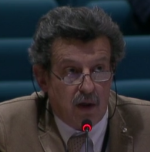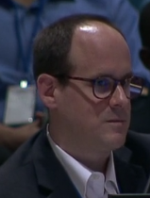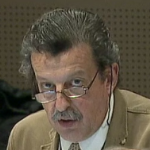Published on Thu, 2017-06-01 00:00
The Social Degradation Report explores the impact of the armed conflict in Syria on social relations. It uses the concept of social capital as an approach to analyse trust, cooperation, and shared values. Direct violence –including displacement, involvement in violent acts, and discriminatory institutional practices– affects both bridging and linking social capitals. Development indicators such as health, education, and employment are strongly correlated with the shared values and attitudes component. While these indicators are not directly related to violence, they affect the cognitive aspect of a shared vision for the community and the country, and are important factors in building the future social contract. Moreover, the research shows that conflict economy and conflict-related deaths are the main determinants of feeling secured, while the trust between individuals is affected by conflict economy, discriminatory institutions, forced displacement, and loss of job opportunities. The Syrian Centre for Policy Research (SCPR) launched its report “Social Degradation in Syria” in cooperation with the Issam Fares Institute for Public Policy and International Affairs (IFI) at the American University of Beirut (AUB) on June 1st. |
Published on Wed, 2017-05-31 00:00
As climate change and neo-liberal economic policies wreak havoc by increasing the disease-burden in the poorest and developing countries, the newly-elected director-general of the World Health Organization (WHO), Dr Tedros Adhanom Ghebreyesus from Ethiopia, faces a herculean task in advancing his goal that "health is a rights issue" and "an end in itself." On Tuesday (23 May), Dr Tedros, a malaria expert, secured the distinction of being the first African candidate to be elected to the WHO's top job. He is also the first democratically-elected director-general through a secret ballot. Effectively, his election brought a paradigm shift by discarding the non-democratic approach of the WHO's Executive Board of 34 countries choosing the director-general (as hitherto). |
Published on Fri, 2017-05-26 16:06
We fear that financial markets are as unregulated now as they were in 2008, with PPP appearing as the only available financial mechanism when at the end in 30 years governments would end up paying said Roberto Bissio of Social Watch, who spoke at the event. The event “Domestic and international private business and finance” that was held last May 24th, 2017. The event took place in the framework of the second ECOSOC Forum on Financing for Development follow-up convened by the President of ECOSOC from 22 to 25 May 2017 at the United Nations Headquarters in New York. |
Published on Fri, 2017-05-26 15:48
Building capacity on tax matters is not just an issue for the global South, governments in the North should also strenghtend their own tax capacity, their own administration capacities when it cames to tax matters said Wolfgang Obenland, member of Global Policy Forum (GPF), Germany, who spoke at the event. The event Follow-up and review of the financing for development outcomes and the means of implementation of the 2030 Agenda for Sustainable Development that was held last May 24th, 2017. The event took place in the framework of the second ECOSOC Forum on Financing for Development follow-up convened by the President of ECOSOC from 22 to 25 May 2017 at the United Nations Headquarters in New York. |
Published on Fri, 2017-05-26 15:23
Social security is a human right and in time of crisis is even more important, not just to face the crisis and the impact on people but also to estabilize the economy said Roberto Bissio, Coordinator of Social Watch, who was a speaker on behalf of the Global Coalition for Social Protection Floors (GCSPF) at the side event "Financing Social Protection Floors throught economic cycles". |
SUSCRIBE TO OUR NEWSLETTER







